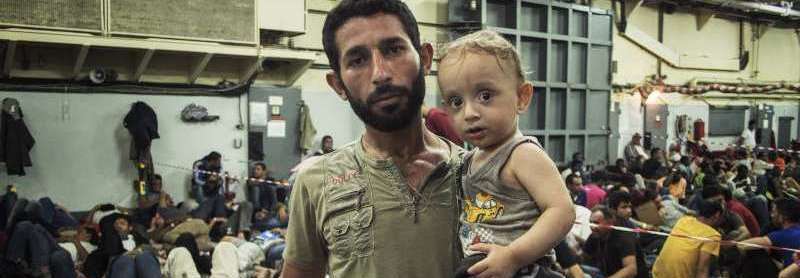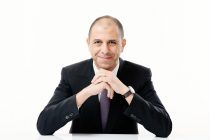Turkey’s ambassador to London Abdurrahman Bilgiç told journalists, “Turkey is doing its share” and urged other countries to do more to relieve human suffering at a press briefing about the World Humanitarian Summit being held in Istanbul on 23-24 May.
The historic event is being attended by United Nations Secretary-General Ban Ki-moon and over 50 heads of state, including Germany’s Angela Merkel. They will rub shoulders with famous activists such as actor Sean Penn, as well as people who have lived through conflicts and disasters.
At a pre-summit briefing at his residence on 19 May, the Turkish ambassador said it was a “distinct privilege” for his country to be hosting the first-ever World Humanitarian Summit (WHS) and that his government hoped the “agenda for humanity” would result in a more “holistic approach towards aid and development”.
Amb. Bilgiç: millions are on the brink of life and death
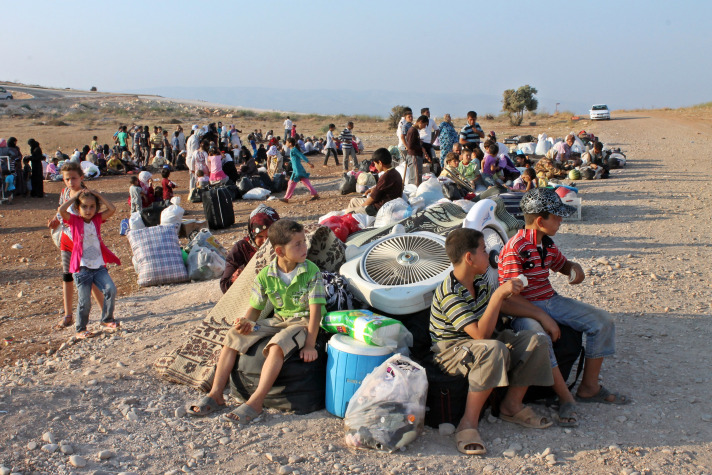
Today, there are an estimated 125 million people requiring humanitarian assistance. Of these, some 60 million are displaced. The ambassador said “millions [of people] are on the brink of life and death.”
The unprecedented situation, intensified by the Syrian Conflict that has left millions homeless, prompted the UN Secretary-General (SG) to request the summit back in 2013 in order to improve the capacity of the humanitarian system to serve people in need.
On Sunday 22 May, UN Deputy Secretary-General Jan Eliasson told reporters in Istanbul: “We have tremendous suffering in the world today. There is huge need for us to show solidarity with those who are affected by natural disasters and man-made disasters”.
UN: World Humanitarian Summit a wake-up call
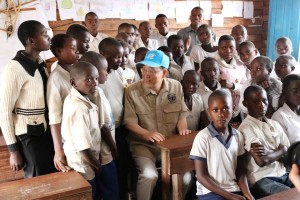
The UN describes the WHS as a “wake-up call” and a “launch-pad for new initiatives”. It has helped bring together 5,000 participants representing global leaders from government, business, aid organisations, civil society, affected communities and youth, among others to discuss the biggest humanitarian crisis the world has ever known.
Turkey – not only home to the largest number of Syrian refugees, but also one of the biggest aid donors in the world – is hosting the event.
The two-day summit, being held at the Istanbul Congress Centre and other sites across the city, officially kicks off on Monday. Activities include high-level leader roundtables, plenary sessions, an exhibition and innovation fair, and hundreds of side events.
At the end of the WHS, the hosts want the international community to adopt more efficient and proactive methods to dealing with crises, whether it is responding to natural disasters or mass human displacement. Turkey argues that at the heart of this should be a ‘strategic, long-term view of alleviating human suffering’, where ‘ad hoc donations are replaced by multi-year planning and funding’.
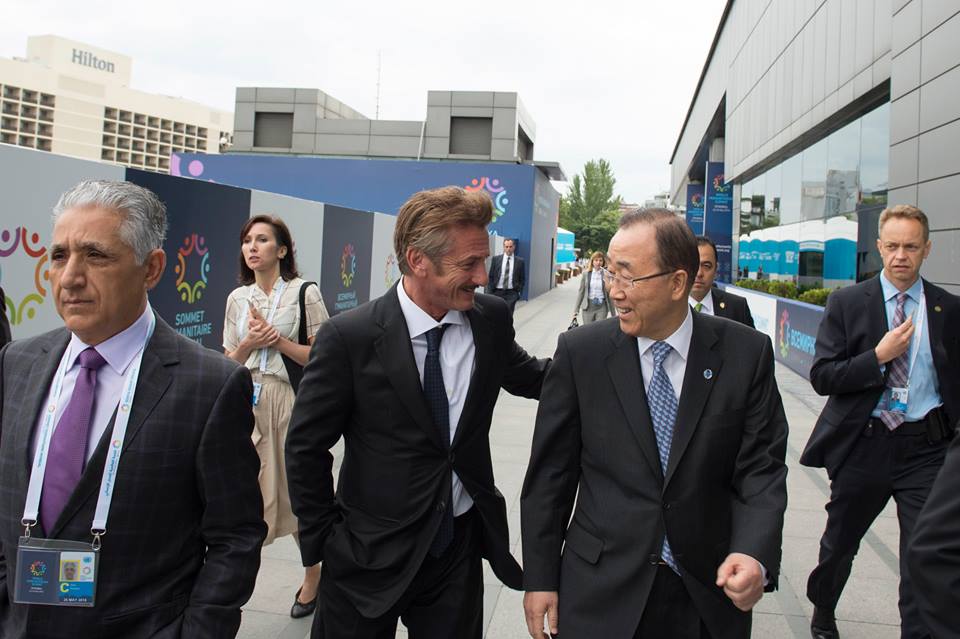
Drawing on its own experience, the Turkish government is pushing for sustainable approaches to aid. Development tools and support should centre on restoring basic infrastructure, and human and institutional capacity-building, so those in greatest need not only have the means to rebuild their lives and communities, but to withstand future crises.
$25-30bn – the cost to Turkey caring for Syrian refugees to date
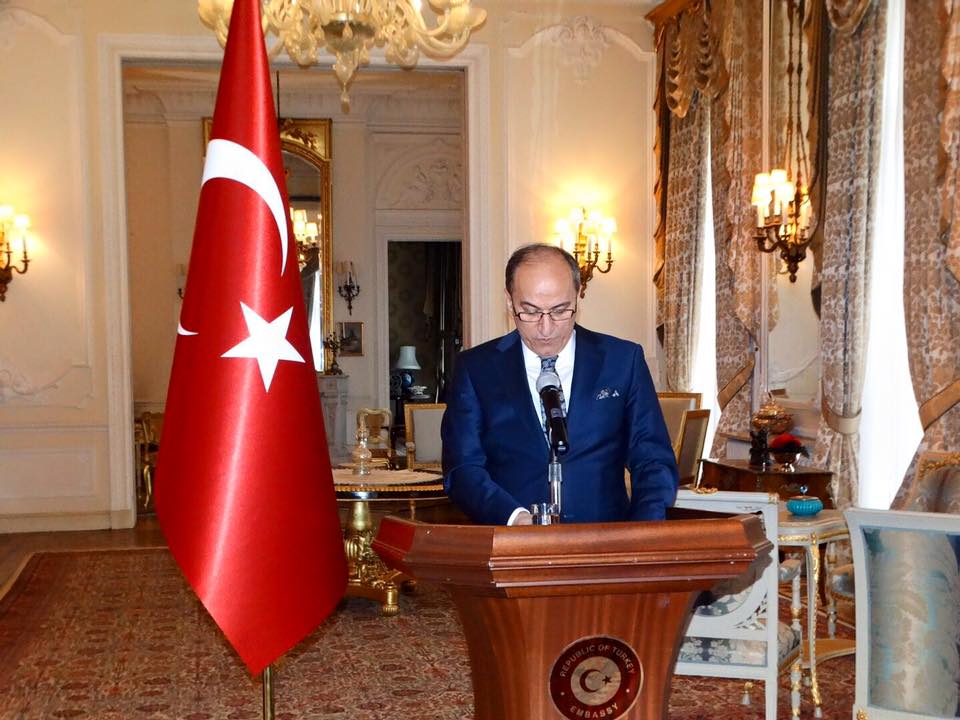
Answering media questions about Turkey’s response to the Syrian refugee crisis at the 19 May briefing, Ambassador Bilgiç outlined some of the challenges his country faced following the influx of millions of Syrian refugees. The ambassador said the cost to the country so far has exceeded $25bn and could be as high as $30bn.
When asked why it took the EU visa deal to prompt the Turkish government to help stem the tide of refugees en route to Europe, the ambassador said Turkey had an “open-door” policy towards refugees: it was not for his government to prevent those fleeing the conflict from seeking a better life elsewhere. He added it was not only Turkey’s obligation to help the Syrians, but that “everyone should share the burden”.
Since its outbreak in 2011, the Syrian conflict has claimed over 300,000 lives and displaced half the population. Turkey and neighbouring countries Jordan and Lebanon have absorbed millions of refugees – the number in Turkey alone stands at over 3 million.
‘Syrian refugees a problem now, a bigger problem in the future’
The ambassador explained that in some Turkish towns bordering Syria, such as Kilis, the number of refugees is so great that they now make up half the population. The situation has created tensions with locals, not least because Daesh has been targeting these towns with rocket attacks, resulting in numerous casualties.
According to Ambassador Bilgiç, his country’s ‘culture of tolerance’ and ‘breaking bread’ with those in most need had seen them embrace their neighbours. The Turks are aware the Syrians are staying for the foreseeable future. This, the ambassador acknowledged, meant that, “there are problems [with Syrian refugees] now and it will be a bigger problem in the future.”
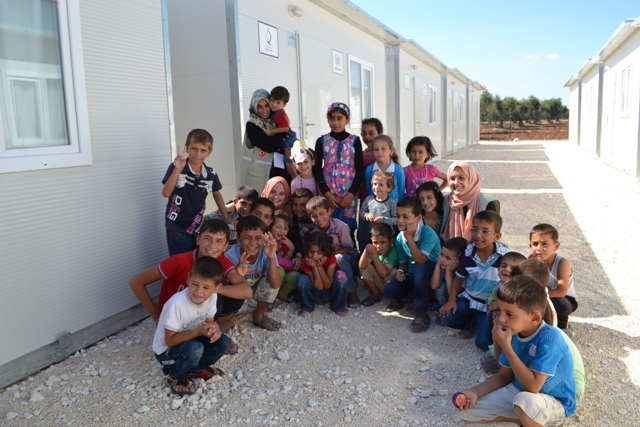
Ankara is seeking ways to support the refugees’ long-term needs: two-thirds of children are currently unable to attend school, while most adults are in need of employment – not just a work permit, but work opportunities. This, the Turkish ambassador said, is where the EU aid would be used.
Ambassador Bilgiç added that his government was in close co-operation with the British authorities over the Syrian crisis and the ongoing security issues Turkey and Europe faced.
When asked by T-VINE if David Cameron was attending WHS, the ambassador’s staff said the British Prime Minster had indicated he was going to Istanbul. Justine Greening, the UK Minister for International Development, is definitely confirmed.
Mehmet Harmancı, the head of Lefkoşa City Council, will be in Istanbul for WHS. However, the TRNC President Akıncı did not receive an invitation and so will not be at the Summit.

